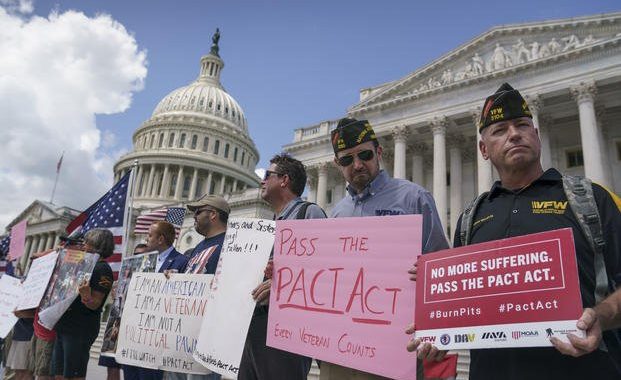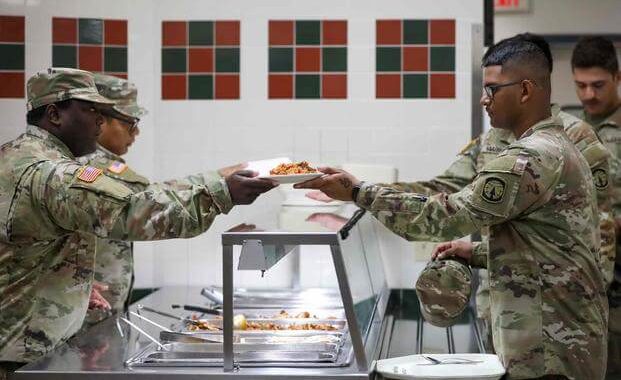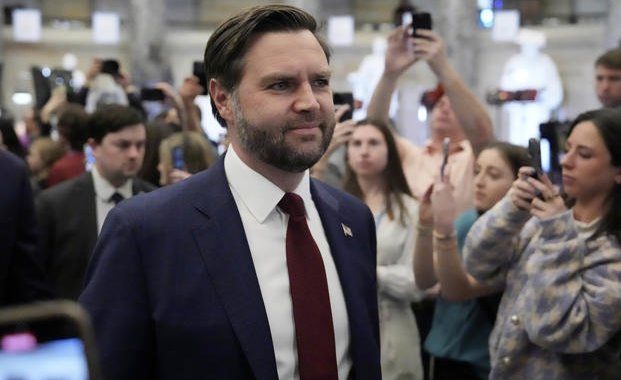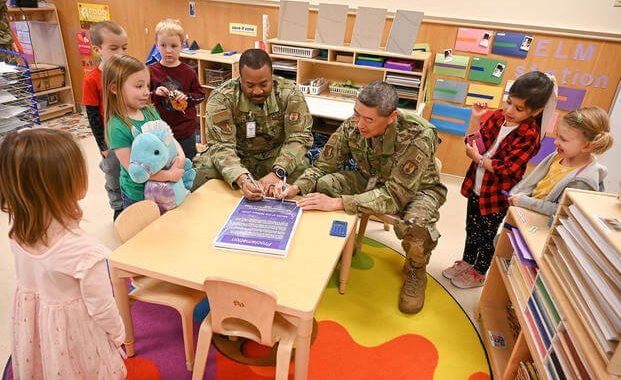Equine therapy program helps veterans heal from trauma, gain work experience
5 min read
For its equine therapy program for military veterans and first responders, Elite Vocations sources its horses from racetracks, where injured or retired horses often live out unhappy, unfulfilled lives.
SAN LUIS OPISPO, Calif. (Tribune News Service) — When retired U.S. Marine Trey Gonzales hears the sound of helicopters, it still causes him pain.
It reminds Gonzales of one of the worst experiences he had while in the military: the death of one of his fellow recruits at the United States Marine Corps School of Infantry during a training exercise.
The sound of the arriving airlift helicopter is still associated in his mind with the incident, and causes him to “go black,” a form of hyper-focused tunnel vision.
To help him as he works through the trauma he experienced, Gonzales is taking part in a new Nipomo equine therapy program created by nonprofit Elite Vocations, which specializes in caring for veterans and first responders suffering from mental and physical wounds.
Gonzales still “goes black” when he hears the sound of a helicopter — which can happen in Elite Vocations’ rural setting not far from Legacy Village Wellness Center when nearby farmers use helicopters to distribute fertilizer — but now, he’s not going through it alone.
“I went black in the arena with the horse, but Simon, the instructor, was able to talk me out of it — the only thing he said was, ‘Breathe,'” Gonzales said. “Instantly, I was able to come out of it, and me and the horse worked through it together. The horse was just as scared as I was.”
Elite Vocations’ rehabilitation and training center gives participating veterans the opportunity to transfer the horsemanship skills they learn into careers on ranches as horse grooms, founder Yvette d’Unienville told The Tribune.
“It’s so great working with our veterans and first responders,” d’Unienville said. “Compared to the general population, they’re so quick to learn.”
South African couple relocate to Central Coast, found equine therapy program
D’Unienville and her husband, Simon, are both from South Africa and only came to horse training in recent years when Simon had a “not-quite midlife crisis,” after which the couple moved to Solvang to study under Monty Roberts, a world-renowned horse trainer, d’Unienville said.
While completing an internship with Roberts, the d’Unienvilles volunteered at equine therapy programs, where Yvette d’Unienville said they saw the difference horses could make in people’s lives.
D’Unienville said while volunteering, she and Simon realized there were few ways for veteran clients who were interested in the horse grooming profession to move into a career, which prompted them to launch Elite Vocations in early June 2023.
At the program, veteran clients attend three days a week, eight hours a day, for a total of ten weeks — walking out the other side as a certified horse groom.
“It’s 100% free to (the veterans), because we know that’s often the biggest obstacle to changing your career,” d’Unienville said. “For a lot of these guys, its already a stretch for them to take time out of working to come here.”
D’Unienville said the program sources its horses from racetracks, where injured or retired horses often live out unhappy, unfulfilled lives.
Many racehorses only grew up with race training and are not used to recreational training, making them a blank slate for the veterans’ training, d’Unienville said.
‘I love the idea of this program,’ veteran says
Navy veteran Lucas Winter, one of the program’s starting batch of six students, said equine therapy is a great fit with both his background as a professional rodeo rider and future aspirations.
Winter said he grew up in Colorado, where he learned to ride and groom horses prior to his military career.
However, after the death of his father around seven years ago, he gave up on riding and spiraled into drug use, culminating in a July 2022 arrest in Santa Maria.
He said his reunion with the animals through the program brought emotions to the surface that he hadn’t felt in years.
“When I felt the horse’s breath on the back of my neck, I lost it — I broke down into tears, because I knew what I had been lacking in my life,” Winter said.
Now, as Winter approaches a year of sobriety, he said he wants to focus on getting back in the saddle and passing on his knowledge of horse care to other veterans as an instructor with Elite Vocations.
“I love the idea of this program,” Winter said. “The percentage of veteran homelessness is astronomical, but through this program, (the veterans) are going to have an opportunity to find a great job, because most ranches offer that as well.”
Santa Maria veteran support group partners with equine therapy program
Winter said he wouldn’t have known about Elite Vocations without his involvement in ECHO Group Band of Brothers, a Santa Maria-based veteran support group founded by Marine veteran Steve Baird.
When he was in jail, Winter said Baird got him out of jail, starting him on the path to sobriety.
Baird said his organization first tried equine therapy in 2022, after the death of one of ECHO Group’s members. The experience of burying one of their brothers left the veterans “depleted,” Baird said.
Dr. Cherylynn Lee, manager of the Santa Barbara County Sheriff’s Office’s Behavioral Sciences Unit recommended Baird and the ECHO Group veterans try equine therapy in Santa Ynez, and to their surprise, it was an “absolutely wonderful” experience, Baird said.
“For us, it’s a no-brainer — it’s another opportunity to merge veterans with not only a good, healthy environment, but possibly the workforce and other members of the community that maybe didn’t serve, but absolutely support and love their vets,” Baird said.
ECHO Group doesn’t have set meetings, instead opting to integrate veterans into the community through shared experiences such as bowling, softball or even skydiving, Baird said.
Baird said veterans already know how to be stoic adults, so reintroducing them to simple, fun activities can help bring them out of their shells.
Having seen the positive effect of equine therapy on ECHO Group’s members, Baird said he hopes to direct more veterans to Elite Vocations in the future.
“It’s just kind of natural for us, I think, to put therapy in anything we do,” Baird said.
Elite Vocations offers its services to veterans for free, with the hope of eventually proving the program’s effectiveness to the Veteran’s Affairs Greater Los Angeles Healthcare System to attain referrals and funding to continue providing equine therapy to veterans, d’Unienville said.
“The ultimate goal is to have veterans teaching veterans,” d’Unienville said. “You need the professional oversight, but that’s our idea — as we move forward, we’ll have these guys teaching a lot of the stuff.”





